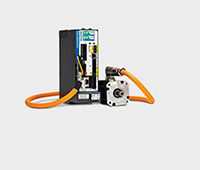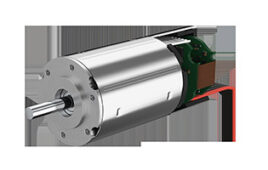 Several years ago, engineers were disuaded from using bisphenol A (BPA) as a material choice in many applications where people might use a product made from it. Here’s an argument for revisiting the use of this material.
Several years ago, engineers were disuaded from using bisphenol A (BPA) as a material choice in many applications where people might use a product made from it. Here’s an argument for revisiting the use of this material.
The human body can survive for weeks without food. Without water, it’s only days. As such, access to clean, safe drinking water is absolutely vital. Perhaps at no time is this more evident than in the aftermath of natural disasters like floods, hurricanes and earthquakes. Disease can spread rapidly and people can quickly become dehydrated when the clean water infrastructure has been compromised or destroyed. In such situations, bottled water can mean the difference between life and death.
Customers of 3- and 5-gal water bottles for home, office and retail delivery require a plastic that can meet market demand for sturdy, yet lightweight bottles that can be recycled.
Bayer MaterialScience, a global polycarbonate supplier, offers a polycarbonate formulated to provide good flow, exemplary dimensional stability, high mechanical and impact strength, and excellent light transmission and transparency. Polycarbonate 3- and 5-gal water bottles can be washed and reused more than 50 times, one of the longest service lives of any water bottle in the field. Most importantly, the bottles, like all bottled water containers, are also sustainable. At the end of its life cycle, the polycarbonate can be recycled into near-virgin resin for second-life use in a variety of applications.
Safe, reliable and rugged, polycarbonate is a proven packaging material. Still, one of its chief chemical building blocks, also known as a monomer, is BPA, and it is frequently misunderstood. The emotional controversy surrounding this monomer often means that reasonable, science-based questions that may be asked about any complex subject can quickly turn confusing.
With that in mind, Bayer MaterialScience and the International Bottled Water Association (IBWA) have teamed up to encourage a fact-focused conversation about polycarbonate.
What is BPA?
It is a chemical building block used primarily to make polycarbonate plastic and epoxy resins. Polycarbonate has been the material of choice for food and beverage product containers for nearly 60 years because it is lightweight, highly shatter-resistant and transparent. It is widely used in various food containers and many other everyday items, such as eyeglasses and compact discs. For example, many bottled water companies use polycarbonate plastic for their 3- and 5-gal water cooler bottles. Because of less stringent toughness requirements in single-serve water bottle containers, polycarbonate is not used there.
Science and experts agree: BPA is safe for its intended uses. Key government bodies around the world have issued favorable opinions on the safety of this monomer. The consensus among these international regulatory agencies, which include the U.S. FDA, Health Canada, the Japanese National Institute of Advanced Industrial Science and Technology, World Health Organization/FAO (Food and Agriculture Organization of the United Nations), and the European Food Safety Agency (EFSA), is that BPA is safe when used as intended.
Many international studies have been conducted to assess the potential for trace levels of monomer to migrate from lined cans or polycarbonate bottles into foods or beverages. The conclusions from those studies and comprehensive safety evaluations by government bodies worldwide are that polycarbonate plastic water bottles are safe for consumer use.
On Jan. 21, 2015, EFSA announced the findings of a comprehensive re-evaluation of BPA exposure and toxicity, concluding that dietary exposure to BPA poses no health concern to consumers of any age group, including unborn children, infants and adolescents. In addition, EFSA noted that exposure to BPA from the diet or from a combination of sources (such as diet, dust, cosmetics and thermal paper) is below the safe tolerable daily intake (TDI) level.
On Jan. 6, 2015, the U.S. FDA updated its “Bisphenol A (BPA): Use in Food Contact Application” page on its website. The update references the newest FDA safety assessment of BPA for use in food contact applications conducted in 2014. The webpage states that, “FDA’s current perspective, based on its most recent safety assessment, is that BPA is safe at the current levels occurring in foods. Based on FDA’s ongoing safety review of scientific evidence, the available information continues to support the safety of BPA for the currently approved uses in food containers and packaging.”
The fact is that international, independent and objective scientific research has repeatedly shown BPA, when used as a monomer for plastics in food contact applications, to be safe.
The Bayer polycarbonate, Makrolon WB1239, used in water bottle applications, is approved by the U.S. FDA for use in water bottles, as well as other food contact applications. A variety of other grades of polycarbonate can be used in food-contact applications as well.
Bayer Material Science
www.materialscience.bayer
Filed Under: Medical-device manufacture, Material handling • converting, INDUSTRIAL SAFETY SYSTEMS, MOTION CONTROL, MORE INDUSTRIES





I have purchased a hard-side carry-on suitcase which I just noticed has a P65 warning of cancer and reproductive harm. I cannot seem to get any advisement from the retailer and am unsure about keeping it or not. Please advise me.